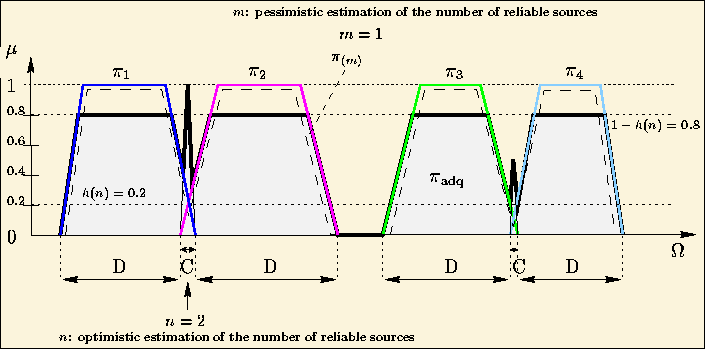 |
 |
![]()
![]()
With at least two sources giving a little agreeing among all those available
(figure 33), areas
where the value of the parameter is more certain than elsewhere (area C),
are sought.
Renormalized conjunctive fusion makes it possible to give more weight to these areas. However, the approach is still disjunctive outside areas C because there is always a strong conflict between all the other sources. The mode of fusion remains mainly disjunctive.
 |
In example 33, there are two areas C for which two sources agree:
In this case, preference is given to the area where the height of the intersection is greatest, i.e. the area for which consensus is highest.
Here h(n) can be at
But h(n) is set at 0.2 (height of intersection of distributions
![]() and
and
![]() ) because
it is the most plausible area on the one hand, and it is necessary to remain
within the limits of interval [ 0, 1 ] for renormalization of
) because
it is the most plausible area on the one hand, and it is necessary to remain
within the limits of interval [ 0, 1 ] for renormalization of ![]() by h(n) on the other hand. As renormalization of conjunctive
fusion is carried out with h(n)
= 0.2, intersection of
by h(n) on the other hand. As renormalization of conjunctive
fusion is carried out with h(n)
= 0.2, intersection of ![]() and
and ![]() is favoured compared to that of
is favoured compared to that of ![]() and
and ![]() .
.